Search Results
Showing results 1 to 20 of 36

Boomerang
Source Institutions
Learners trace, cut out and fly a boomerang, outdoors or in a large indoor space.
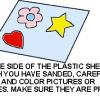
Shrinking Polymers
Source Institutions
In this activity, learners discover that some plastics will shrink when you get them hot. Learners bake polystyrene in a regular oven and discover what happens.
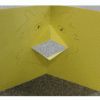
Simple Pop-Up Mechanisms
Source Institutions
In this activity, learners construct three quick and simple mechanisms to start building a pop-up book. Learners fold, cut, and glue paper to make a bird beak, parallelogram, and V-fold.
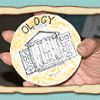
Mint Your Own Coin
Source Institutions
Coins are everyday objects which tell a lot about the people who use them.
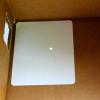
Pinhole Viewer
Source Institutions
In this activity, learners discuss and investigate how cameras, telescopes, and their own eyes use light in similar ways.
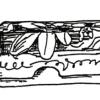
Box Ecology
Source Institutions
This great "re-use it" activity will demonstrate how to transform a greeting card into a box. Once constructed, the box can have many uses like holding special notes or keepsakes.

Building a 3-D Space Maze: Escher Staircase
Source Institutions
In this activity (page 95 of the PDF), learners create Escher Staircase models similar to those that were used by Neurolab's Spatial Orientation Team to investigate the processing of information about
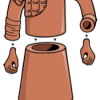
Building an Army
Source Institutions
In this activity, learners explore the potential of interchangeable standard parts to create a large number of unique creations in different combinations.

Nature Journals
Source Institutions
In this activity, learners construct a home-made journal with simple, everyday materials.

Tessellations
Source Institutions
In this activity, learners will engineer a new shape and use it to create a new pattern with no wasted space.
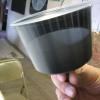
Mini Zoetrope
Source Institutions
In this activity (posted on March 27, 2011), learners follow the steps to construct a mini zoetrope, a device that produces an illusion of action from a rapid succession of static pictures.
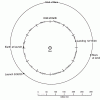
Getting There!: Navigation and Trajectory
Source Institutions
In this two-part activity, learners map a navigation plan to get from Earth to Mars and back. In activity one, learners represent the orbital paths of Earth through dance and dramatic movement.
Magnus Glider
Source Institutions
A design challenge that takes paper airplanes into an entirely different direction: a magnus glider uses cups and and rubber bands to create a glider that uses the same forces that a curveball (from b
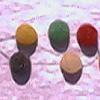
Gumdrop Chains and Shrinky Necklaces
Source Institutions
In this activity, learners thread gumdrops together to make a model of a polymer.

Marshmallow Models
Source Institutions
No glue is needed for learners of any age to become marshmallow architects or engineers.
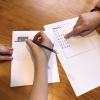
Squeezing Pictures Into Codes
Source Institutions
In this activity, learners will explore how computers represent pictures using pixels.
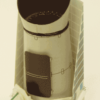
Kepler Paper Model
Source Institutions
In this activity, learners build a paper model of the spacecraft and photometer (telescope) used during NASA's Kepler Mission.
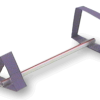
Straws and Airplanes
Source Institutions
Create airplanes from straws and geometric shapes. Test them out to see how far they can fly, or how accurately they can be aimed.
Build a Bridge
Source Institutions
In this activity, learners use recycled materials to build a bridge that holds as many potatoes as possible. They investigate weight, height, strength, and measurement as they seek design solutions.
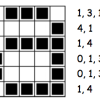
Colour by Numbers: Image Representation
Source Institutions
This activity shows learners how computers use numbers to represent pictures. A grid is used to represent the pixels (short for picture elements) of a computer screen.
